Search
Remove Ads
Advertisement
Summary 
Loading AI-generated summary based on World History Encyclopedia articles ...
Search Results
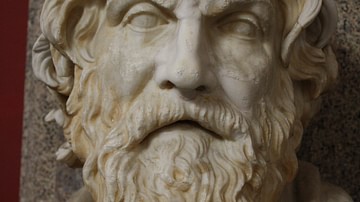
Definition
Antisthenes of Athens
Antisthenes of Athens (l. c. 445-365 BCE) was a Greek philosopher who founded the Cynic School. He was a follower of Socrates and appears in Plato's Phaedo as one of those present at Socrates' death. He is also one of the primary interlocutors...
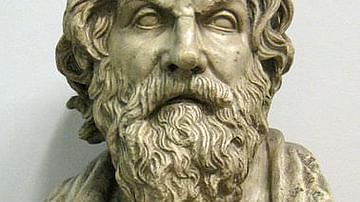
Article
The Life of Antisthenes of Athens in Diogenes Laertius
Antisthenes (c. 445-365 BCE) was a Greek philosopher who founded the Cynic School of Athens. He was a follower of Socrates and appears in Plato's Phaedo as one of those present at Socrates' death. He is one of the primary interlocutors in...

Definition
Diogenes of Sinope
Diogenes of Sinope (l. c. 404-323 BCE) was a Greek Cynic philosopher best known for holding a lantern (or candle) to the faces of the citizens of Athens claiming he was searching for an honest man. He rejected the concept of "manners" as...
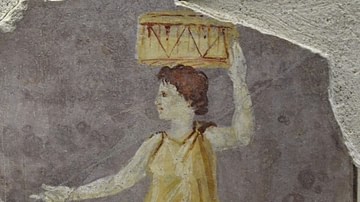
Definition
Hipparchia of Maroneia
Hipparchia of Maroneia (l. c. 350-280 BCE) was a Cynic philosopher who rejected her upper-class life to live her beliefs and share her values on the streets of ancient Athens. She was the wife of the Cynic Crates of Thebes (l. c. 360-280...

Article
The Life of Diogenes of Sinope in Diogenes Laertius
Diogenes of Sinope (c. 404-323 BCE) was a Greek Cynic philosopher best known for holding a lantern to the faces of the citizens of Athens claiming he was searching for an honest man. He was most likely a student of the philosopher Antisthenes...

Image
Antisthenes Bust, Vatican Museums
A portrait of the Greek philosopher Antisthenes (c. 450-370 BCE), founder of the Cynic school of philosophy. 2nd century CE Roman copy of a 3rd century BCE original by Phyromachus. (Vatican Museums, Rome)
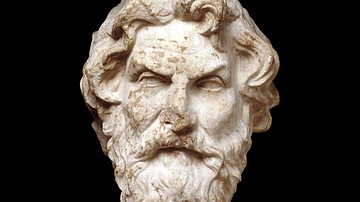
Image
Antisthenes Bust, British Museum
A portrait of the Greek philosopher Antisthenes (c. 450-370 BCE), founder of the Cynic school of philosophy. Roman copy of a lost Greek original c. 300 BCE. (British Museum, London)
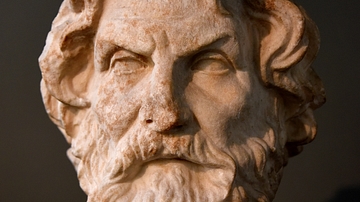
Image
Antisthenes, Cynic Philosopher
Antisthenes (450-370 BCE) was the founder of the Cynic school of philosophy. From near the Via Appia, Rome. Roman copy of a lost Greek original of the late 3rd or 2nd century BCE. (British Museum, London)

Image
Antisthenes Bust
Bust of Antisthenes from the Pushkin Museum, Moscow

Definition
Athens
Athens, Greece, with its famous Acropolis, has come to symbolize the whole of the country in the popular imagination, and not without cause. It not only has its iconic ruins and the famous port of Piraeus but, thanks to ancient writers, its...